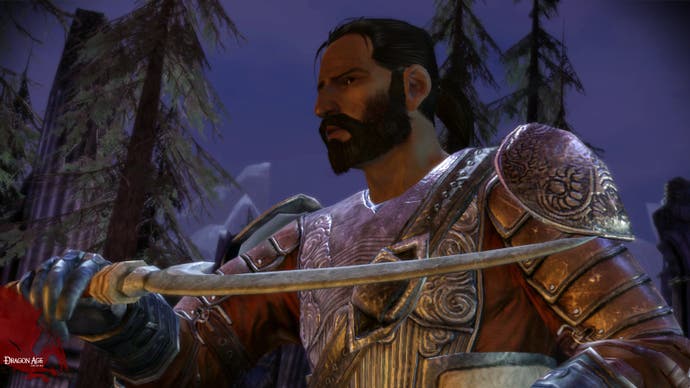Games of 2009: Dragon Age: Origins
Epic scale.
What I take away from Dragon Age is a sense of having been somewhere. No, more than that. Having lived somewhere. In most well-established gaming worlds I feel as though I've been a visitor. Dragon Age was my home.
This is thanks to the extraordinary depth to which everything reaches. The story you're playing isn't something new to the lands of Ferelden. Every few hundred years there's a Blight, an uprising of the Darkspawn in response to the emergence of a new Archdemon, leading to terrible wars and horrendous death. A band of elite fighters called the Grey Wardens exist to defeat these attacks, and it's to this group that your character is quickly recruited. But it's a group that's diminished, disrespected if not totally forgotten. Because people forget.
But this is only the surface of the history. Everything, everywhere, everyone has an elaborate background you can learn all about, listen to, read into, and absorb. Or ignore it if you wish. Even the two guys running the shop in your base camp have a background to explore, a complex relationship, and past actions that will raise moral questions.
Learning about the history of the Chantry, Ferelden's dominant religion, perhaps demonstrates BioWare's astonishing detail at its finest. Not many games try to invent a new religion. Fewer still create one so rich with problems, so divided - to the point of schism - with such potential for good and for evil. You know, like a real religion. What's even more interesting is deciding whether your character believes in the Chant or not. It's a peculiar decision to make. I decided mine would.
I decided this because he was from a wealthy family of nobility, the sort who would likely be involved in the religion by tradition rather than necessarily belief. I wanted a character who was questioning his faith, challenged by facing the reality of the harm it was doing, but also willing to support where it did good. Which brings me to that moment in the Dwarven city of Orzammar. I feel compelled to warn you of spoilers of one side-quest to follow.

Dwarves don't follow the Chant. Instead their faith is based on the history of their ancestors. It's another complex and involved belief system, quite at odds with the predominant Human religion of the country. And most Dwarves would never have any cause to be concerned by alternative faiths. To even leave Orzammar is to be outcast, never welcome back. But the Dwarves also have a caste system, and with that comes great discomfort for the visiting outsider. Those who are casteless (untouchable) are despised, forced to live in poverty and squalor, turning to crime and prostitution to survive. For nothing other than being born.
So when you meet a guy who wants to set up a Chantry in Orzammar you have an incredibly complicated situation. Brother Burkel is a Dwarf who wants to establish a place of worship in the Orzammar Commons district. He asks for your help with this. In many ways this is a familiar BioWare side-quest formula, a moral quandary with unpredictable consequences.
For some this might be a very simple case for no: The Dwarves have a religion, and to begin touting another is disrespectful and inappropriate. For others it might be far more complicated: Is it appropriate for one person to impose his culture on another? And for others still it's simply yes: Everyone has a right to freedom of religion, and he should be given that freedom and the right to worship.
But it's more complex than that. Because Burkel intends to use his Chantry for two reasons. The first is to care for the casteless, feed and clothe them, help them to escape from criminal gangs and the sex industry. The second is to evangelise his faith amongst the Dwarves. And good grief, both of those are rich with issues.









